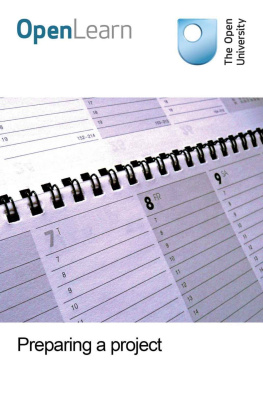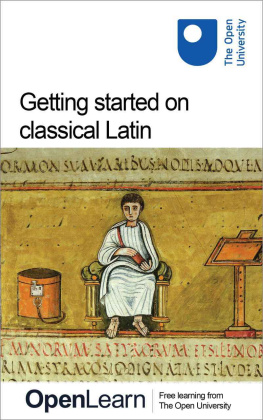The No-Willpower Approach to Breaking Any Habit
Bad Habits Indicate Mental Wellness
Contrary to popular belief, bad habits and addictive behaviors are not symptoms of illnesses. People engage in bad habits when they seek to alleviate pain and return to their natural state of mental well-being. Thus, addictions and habits actually indicate how mentally healthy you are. Most people are fundamentally healthy and calm on a deep, spiritual level, but their negative thoughts cause them to believe otherwise.
Viewing addictions and disorders as thought-created habits is not only fair and accuratebut it is also incredibly hopeful.
You suffer when you give in to urges and addictions, but you are still making the best choices you know how to make for yourself. Gaining insight into these urges will help you make healthier choices in a way that feels effortless and natural. People often give their negative urges too much power. They regard their habits as a reflection of who they are as human beings. But, habits are not a part of your identity. They are responses to misguided thoughts that pass through your mind. Your habit may dominate your thoughts, emotions and behaviors, but your habit says nothing at all about your basic nature that part of you that is always there and always true, underneath your surface thoughts, emotions and behaviors.
Your habit is rooted in an attempt to feel better, but that doesnt mean you have to radically change your life for your habit to go away.
When you realize your habits are temporary actions, not an innate part of you, you become less likely to give in to negative urges. Rather than react impulsively to negative thoughts that push you to engage in harmful habitual behavior, you can acknowledge the urge as a passing thought. Becoming aware of the temporal nature of thought will weaken your urge to succumb to a habit.
Your Lower Brain
Your lower brain forms the thoughts that tell you to act out a bad habit. This primal part of your brain connects to your impulse for survival. Some refer to it as the reptilian brain or inner lizard. When the lower brain pushes you to engage in a habit, the push feels powerful because your brain mistakenly associates your habit with the things you need to have to survive, like water or food. But lower-brain signals to indulge in a bad habit can make you uncomfortable. Physical tension in your body often accompanies the negative thoughts that such signals generate.
Your habit is a useful indicator that you are in a low state of mind, using your amazing power of thought to your detriment rather than to your benefit.
The link between a habit that isnt tied to survival and this primal association is a neurological misunderstanding. Detaching meaning from your lower brains urges is important. Much like an alarm clock that youve accidentally set to wake you up at the wrong time, an urge is a mechanical mistake occurring when your lower brain sends you the wrong signal.
That extremely uncomfortable drive to act on your habit is neurologically strengthened each time you obey the urge.
Just as you wouldnt get out of bed if your alarm clock didnt ring, you dont have to act on the signals from your lower brain. If you stop letting these signals dictate your behavior, the urges they spark will grow fainter over time.
Willpower
Willpower isnt an effective tool for overcoming bad habits. Relying on willpower alone to end a habit can reinforce it instead. For instance, if you want a doughnut and start to debate with yourself about whether to eat one, youre giving your thoughts about doughnuts more power. When you attempt to use willpower to overcome an urge, you end up thinking about that urge even more and creating a stronger neural pathway to that habit.
The more you begin to follow your own inner nudges and common sense, the further away from your chaotic, thought-based, surface-only habit youll find yourself.
Scientists observe that when they tell people to suppress thoughts about specific things, they became even more likely to think about those things. Psychologist Daniel Wegner wrote in 1989 in White Bears and Other Unwanted Thoughts: Suppression, Obsession, and the Psychology of Mental Control that when researchers told subjects not to think about white bears, the subjects couldnt stop themselves from thinking about white bears. Scientists have a name for the difficulty people have in consciously willing something out of their minds; its called the Ironic Monitoring Process.
You werent born with your habit, and it is not an essential part of who you are.
Thoughts are passing signals that never activate themselves. You can choose whether to act on an urge. Youre the only one who can make that choice. The willpower method takes motivation, energy and strength, but sometimes people cant muster sufficient willpower to deny their urges.
Breaking a Habit
Each time you engage in a habit, the urges associated with it grow stronger. You effectively teach your brain to reinforce your habits every time you give in to them. First, you experience thoughts that push you to act on a habit. Then, obeying those thoughts prompts your brain to wire together the thought and the habit. This strengthens your urges on a neurological level.
You can experience more joy folding laundry or filing papers than going on your dream vacation if you are fully in life and not just thinking about life.
Instead, view your urges as an early detection system that lets you know when you are succumbing to negative thoughts. You can break a habit by being mindful of your urges and letting them pass. This is self-directed neuroplasticity. If you dont act on your urges, they grow weaker in time.
You react differently to thoughts from your lower brain. Often, when your lower brain triggers impulses to carry out a bad habit, you dont feel calm or mentally healthy. Your lower brain is repetitive and triggers the same negative thoughts again and again. For instance, you may find yourself thinking just one more drink multiple times. In Steering by Starlight , author Martha Beck identifies repetitive thoughts from the lower brain as neurological junk. Recognizing these negative thoughts as junk weakens their power over you.
Universal Mind
Spirituality and neuroscience arent diametrically opposed. Use both to your advantage. To conquer an addiction or habit, tune in to your innate spiritual self. This will help you to view your urges as fleeting and to understand that you are already healthy at your core.
At some point, you see through your habit. You begin to realize that it is only thought-created experience occurring within you. You can witness it without diving into it.
Familiarize yourself with spiritual psychologys Three Principles. These three tenets will help you gain the power you need to change your behavior for good:
Universal Mind is the creative and intelligent energy from which all life originates.
Thought is the vehicle humans use to gain knowledge about the world around them.
Consciousness is the ability to experience life directly as it happens.
You are not a fixed entity with a fixed habit you are fresh in each moment, with infinite possibilities available to you.
Thought and consciousness enable people to have positive experiences. If you wander too far away from Universal Mind which forms the core of who you are you can get caught up in negative experiences. Experiencing thought and consciousness are part of what makes you human, but dont neglect your spiritual side. Practicing mindfulness helps you to connect to your spiritual core and weakens your attachment to the thoughts telling you to obey your urges.
That formless intelligence that powers all of life is you, at your core. It is the health and wellness that is you, underneath your human thoughts, emotions, behaviors and habits.














